
Sumio Iijima is a Japanese physicist and inventor, often cited as the inventor of carbon nanotubes. Although carbon nanotubes had been observed prior to his "invention", Iijima's 1991 paper generated unprecedented interest in the carbon nanostructures and has since fueled intense research in the area of nanotechnology.
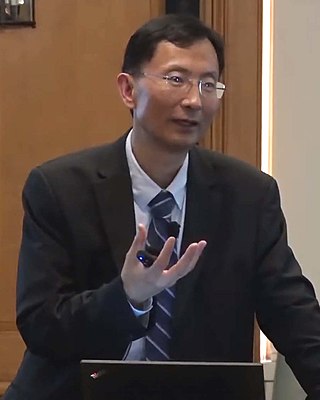
Huajian Gao is a Chinese-American mechanician who is widely known for his contributions to the field of solid mechanics, particularly on the micro- and nanomechanics of thin films, hierarchically structured materials, and cell-nanomaterial interactions. He is a Distinguished University Professor at Nanyang Technological University in Singapore and Walter H. Annenberg Professor Emeritus of Engineering at Brown University. He is the editor-in-chief of Journal of the Mechanics and Physics of Solids.
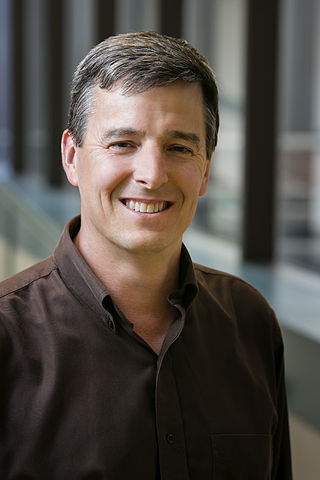
John A. Rogers is a physical chemist and a materials scientist. He is currently the Louis Simpson and Kimberly Querrey Professor of Materials Science and Engineering, Biomedical Engineering, and Neurological Surgery at Northwestern University.
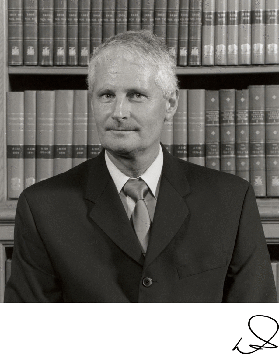
Anthony Glyn Evans was Alcoa Professor of Materials, professor of Mechanical Engineering, director of the Center for Multifunctional Materials and Structures and co-director for the Center for Collaborative Engineering Research and Education at the University of California, Santa Barbara, United States.

Ching Wan Tang is a Hong Kong–American physical chemist. He was inducted into the National Inventors Hall of Fame in 2018 for inventing OLED, and was awarded the 2011 Wolf Prize in Chemistry. Tang is the IAS Bank of East Asia Professor at the Hong Kong University of Science and Technology and previously served as the Doris Johns Cherry Professor at the University of Rochester.
Yang Yang is a Taiwanese-American materials scientist. He is a Professor of Materials Science and Engineering, and Professor of Bioengineering at the University of California, Los Angeles, where he holds the Carol and Lawrence E. Tannas Jr. Endowed Chair in Engineering. Yang is known for his contributions to polymer organic solar cells and lead-halide perovskite solar cells. He was named as one of the "World’s Most Influential Scientific Minds" by Thomson Reuters in 2016. Yang is a fellow of the American Association for the Advancement of Science, American Physical Society, Materials Research Society, Royal Society of Chemistry, and Society of Photo-Optical Instrumentation Engineers.

James R. Chelikowsky is a professor of physics, chemical engineering, chemistry and at The University of Texas at Austin. He is the director of the Institute for Computational Engineering and Sciences' Center for Computational Materials. He holds the W.A. "Tex" Moncrief Jr. Chair of Computational Materials.
Merrill Brian Maple is an American physicist. He is a distinguished professor of physics and holds the Bernd T. Matthias Chair in the physics department at the University of California, San Diego, and conducts research at the university's Center for Advanced Nanoscience. He has also served as the director of UCSD's Institute for Pure and Applied Physical Sciences (1995-2009) and its Center for Interface and Materials Science (1990-2010). His primary research interest is condensed matter physics, involving phenomena like magnetism and superconductivity. He has authored or co-authored more than 900 scientific publications and five patents in correlated electron physics, high pressure physics, nano physics, and surface science.

Denis Wirtz is the vice provost for research and Theophilus Halley Smoot Professor of Engineering Science at Johns Hopkins University. He is an expert in the molecular and biophysical mechanisms of cell motility and adhesion and nuclear dynamics in health and disease.
Julia Wan-Ping Hsu is an American materials scientist. In her research, she uses scanning probe microscopy to study the nanostructure, optics, and photoelectric properties of thin films and crystal surfaces, with particular application to solar cells, and has used nanotransfer printing to make electrical connections to single-molecule sensing devices. She is a professor of materials science and engineering at the University of Texas at Dallas, where she holds the Texas Instruments Distinguished Chair in Nanoelectronics.

Kasturi Lal Chopra was an Indian materials physicist and a former director of the Indian Institute of Technology, Kharagpur. He was the founder of the Thin Film Laboratory at Indian Institute of Technology, Delhi and the Microscience Laboratory at IIT, Kharagpur and held several US and Indian patents for his research findings. Author of a number of books on thin film technology, he was a recipient of Shanti Swarup Bhatnagar Prize, the highest Indian award in the science and technology categories. The Government of India awarded him the fourth highest civilian honour of the Padma Shri, in 2008, for his contributions to science and engineering.
Anna Christina Balazs is an American materials scientist and engineer. She currently is Distinguished Professor at the University of Pittsburgh and holds the John A. Swanson Chair at the Swanson School of Engineering.

Lars Ivar Samuelson is a Swedish physicist and professor in nanotechnology and semiconductor electronics at Lund University.
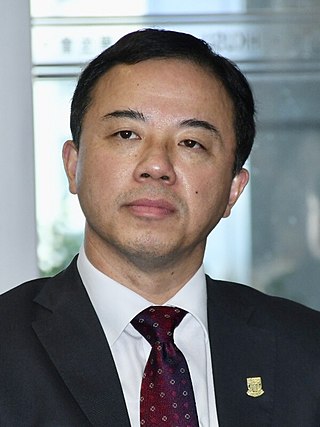
ZhangXiang is a Chinese-American academic administrator, material scientist, optical engineer and physicist. He is the current vice-chancellor and president of the University of Hong Kong, where he also serves as professor.
Weizhu Bao is a Chinese mathematician at the National University of Singapore (NUS). He is known for his work in applied mathematics with applications in quantum physics and chemistry and materials science, especially Bose-Einstein condensation (BEC) and highly oscillatory partial differential equations.
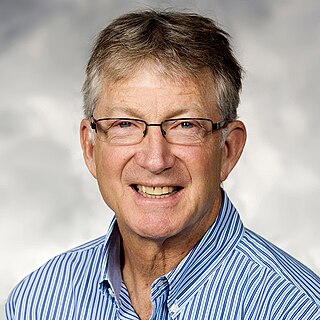
James L. Skinner is an American theoretical chemist. He is the Joseph O. and Elizabeth S. Hirschfelder Professor Emeritus at the University Wisconsin-Madison. He is also a member of the Scientific Advisory Board of the Welch Foundation. Most recently, Skinner was the Crown Family Professor of Molecular Engineering, professor of chemistry, director of the Water Research Initiative and deputy dean for faculty affairs of the Pritzker School of Molecular Engineering at the University of Chicago. Skinner is recognized for his contributions to the fields of theoretical chemistry, nonequilibrium statistical mechanics, linear and nonlinear spectroscopy of liquids, amorphous and crystalline solids, surfaces, proteins, and supercritical fluids. Skinner is the co-author of over 230 peer-reviewed research articles.
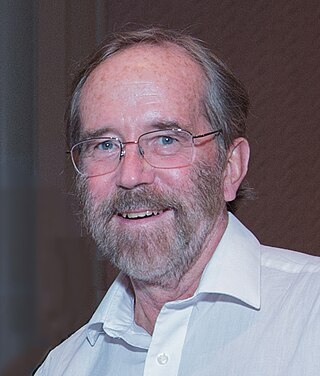
Joseph "Joe" E. Greene, known in his professional writing as J. E. Greene was an American materials scientist, specializing in thin films, crystal growth, surface science, and advanced surface engineering. His research and scientific contributions in these areas have been described as "pioneering" and "seminal" and that his work "revolutionized the hard-coating industry".

Supriyo Bandyopadhyay is an Indian-born American electrical engineer, academic and researcher. He is Commonwealth Professor of Electrical and Computer Engineering at Virginia Commonwealth University, where he directs the Quantum Device Laboratory.
Ting-Kuo Lee is a Taiwanese physicist.
Mathias Michael Schubert is a German physicist, J. A. Woollam Distinguished Professor of Electrical and Computer Engineering at the University of Nebraska-Lincoln, and member of the Nebraska Center for Materials and Nanoscience. He is a specialist in spectroscopic ellipsometry and has contributed to the development of blue and white LED, fast processors and efficient biological and chemical sensors. He is also visiting professor at Linkoping University and Associate Editor of the journal Applied Physics Letters.













